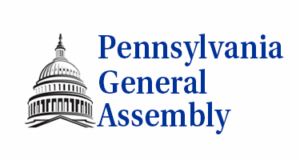PA Health Policy Update for July 3
The following is an update of selected state health policy developments in Pennsylvania from June 30 – July 3. (Some of the language used below is taken directly from state documents).
Fiscal Year 2025-26 Budget Update
Governor Shapiro and legislative leaders have yet to reach a final agreement on the commonwealth’s Fiscal Year (FY) 2025-26 spending plan. In a statement released by Senate Republican leadership, they indicated they’ll continue to “work with all parties to reach a final agreement.” Governor Shapiro and House Democratic leadership have indicated an agreement may be possible in the coming weeks. Presently, the Senate is recessed until the call of the chair and the House is scheduled to return to Harrisburg on Monday, July 7.
Governor Shapiro
- Governor Shapiro has signed into law House Bill 640, which is now known as Act 14 of 2025. Act 14 updates annual reporting requirements for the Department of Drug & Alcohol Programs (DDAP) and eliminates the sunset date of the state’s provider assessments in anticipation of certain changes to provider assessments being contemplated by the U.S. Congress.
- Governor Shapiro has signed Senate Bill 411 into law. Act 24 of 2025, as it’s now known, provides the ability for the Pennsylvania Department of Health to create and utilize a stroke registry.
- The Shapiro administration has released a document with estimates regarding how many Pennsylvanians may lose Medicaid and SNAP benefits as a result of the reconciliation package being considered by the U.S. Congress.
General Assembly
The state House of Representatives and Senate briefly convened in Harrisburg this week. The following is an overview of selected health care-related legislative activity that occurred.
- The Senate voted to concur with the House amendments to Senate Bill 95, which permits EMS providers to leave naloxone with a caregiver of a patient who overdosed. The bill also places certain disclosure requirements on pharmacies related to the retail and generic versions of prescribed medications and allows for the provisional licensing of pharmacists. The bill has been presented to Governor Shapiro for his signature.
- The House of Representatives passed House Bill 1234, which expands the Medical Assistance (MA) program to cover blood pressure monitors for home use as a pregnancy-related service on a per pregnancy basis. The bill will now be sent to the Senate for consideration.
- The House of Representatives passed House Bill 482, which authorizes Pennsylvania to join the National Occupational Therapy Licensure Compact. The bill will now be sent to the Senate for consideration.
- The House of Representatives voted to concur with the Senate’s amendments to House Bill 309, which amends the Osteopathic Medical Practice Act to allow team physicians traveling internationally with their club or national team to treat their own players on site during games without needing a Pennsylvania medical license. The bill was subsequently presented to Governor Shapiro for his signature.
- The House Labor & Industry Committee met on Tuesday, July 1 and favorably reported House Bill 1676, which establishes the Nursing Shortage Assistance Program. A recording of the meeting is viewable here.
- The House Health Committee met on Tuesday, July 1 and favorably reported Senate Bill 715, which extends the Rare Disease Advisory Council’s sunset date to 2028. A recording of the meeting is viewable here.
- The House Finance Committee met on Monday, June 30 and favorably reported House Bill 1129, which allows early-stage technology and biotechnology businesses to sell their net operating losses (NOL) and unused research and development tax credits to unrelated companies. A recording of the meeting is viewable here.
The House of Representatives is currently scheduled to return to session on Monday, July 7. The Senate is recessed until the call of the chair.
Department of Human Services
- The Department of Human Services (DHS) has published its annual list of exceptional Durable Medical Equipment (DME) for nursing facilities. Find the list and additional information in this Pennsylvania Bulletin notice.
- DHS has issued an updated Pennsylvania Medicaid Managed Care Directory.
- DHS has issued its report on Medicaid managed care enrollment in Pennsylvania for the month of May 2025.
Department of Health
The Department of Health (DOH) has published notice that, effective July 1, 2025, ConcussionWise is no longer an approved concussion management certification training course. The only approved courses are through the Centers for Disease Control and Prevention (CDC) and the National Federation of State High School Associations (NFHS). Find additional information in this Pennsylvania Bulletin notice.
Revenue Collection Update
The Department of Revenue has announced that Pennsylvania ended the 2024-25 fiscal year with $46.4 billion in General Fund collections, which is $321 million, or 0.7 percent, above estimate. The Independent Fiscal Office’s (IFO) monthly revenue update for June 2025 is viewable here.
Department of Drug & Alcohol Programs 
The Department of Drug & Alcohol Programs (DDAP) has announced that the agency recently issued Pennsylvania’s first telehealth exceptions for a DDAP-licensed substance use disorder (SUD) treatment provider. Prior to this, only SUD treatment facilities with a physical location in Pennsylvania could apply to DDAP for a license to also offer telehealth services. This new program does not require a physical location in order for a treatment provider to administer telehealth services.
Board of Medicine
The State Board of Medicine has published final-form rulemaking, which is effective upon publication in the Pennsylvania Bulletin, implementing Act 79 of 2021. This rulemaking modernizes physician assistant (PA) practice by removing certain restrictions and allowing for greater autonomy for PAs. Find additional information in this Pennsylvania Bulletin notice.
Board of Physical Therapy
The State Board of Physical Therapy has published final-form rulemaking regarding changes to the physical therapy examination process and continuing education requirements. Find the final rule in this Pennsylvania Bulletin notice.
Around the State
Spotlight PA has written an article about the increasing prevalence of Nitazines, a class of powerful synthetic opioids, and the Department of Health’s efforts to reschedule these drugs to limit access and allow prosecutors to charge suppliers.
The Philadelphia Inquirer has published an article about Pennsylvania’s late FY 2025-26 budget and what the immediate impact may be. CBS 21 has also published a piece of the status of the state budget.









